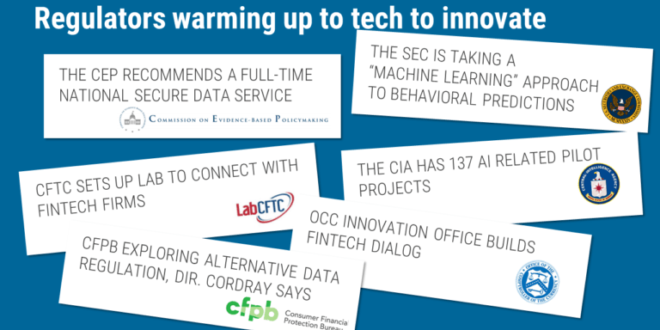RegTech has become one of the latest buzzwords in the FinTech world. But what exactly is RegTech? And what’s driving it?
RegTech, in its broadest sense, is any technology and/or software that addresses regulatory challenges and helps companies understand regulatory requirements and stay compliant. There are five main drivers pushing RegTech’s growth today:
- Increasing regulatory pressure — the number of regulations from the more than 750 global regulators is daunting to keep up with, and this is only going to become more complex over time.
- More regulator oversight — following the 2008-2009 financial crisis, regulators worldwide have been given increased oversight and have been holding firms accountable for misconduct and mismanagement. More than USD 321 billion has been paid in fines in the last decade.
- Non-compliance in the industry — despite stricter fines, many financial institutions are still lagging behind and are non-compliant. RegTech companies are helping with this, pushing financial institutions from being reactive and barely keeping up with requirements to being proactive.
- Greater technical compliance requirements — as firms are being required to implement data analytics, quantitative risk modeling, real-time reporting and more, they are turning to RegTech companies to comply and transform manual, ad hoc reporting into an automated process.
- Firms pushing for standardization — the complexity of the regulatory landscape has firms calling for regulators to standardize requirements. In turn, regulators have begun collaborating with each other as well as with startups to help consolidate requirements.
As RegTech continues to gain traction, the next phase will likely include innovations that leverage artificial intelligence, machine learning, natural language processing and blockchain technology. The short-term impact of RegTech is likely to be helping firms switch from passive to proactive regulatory interpretation and response. In the longer term, RegTech solutions could reduce the need for human interventions and, if properly developed, the need for regulators themselves.
 BFC Bulletins Monthly News Digest
BFC Bulletins Monthly News Digest




